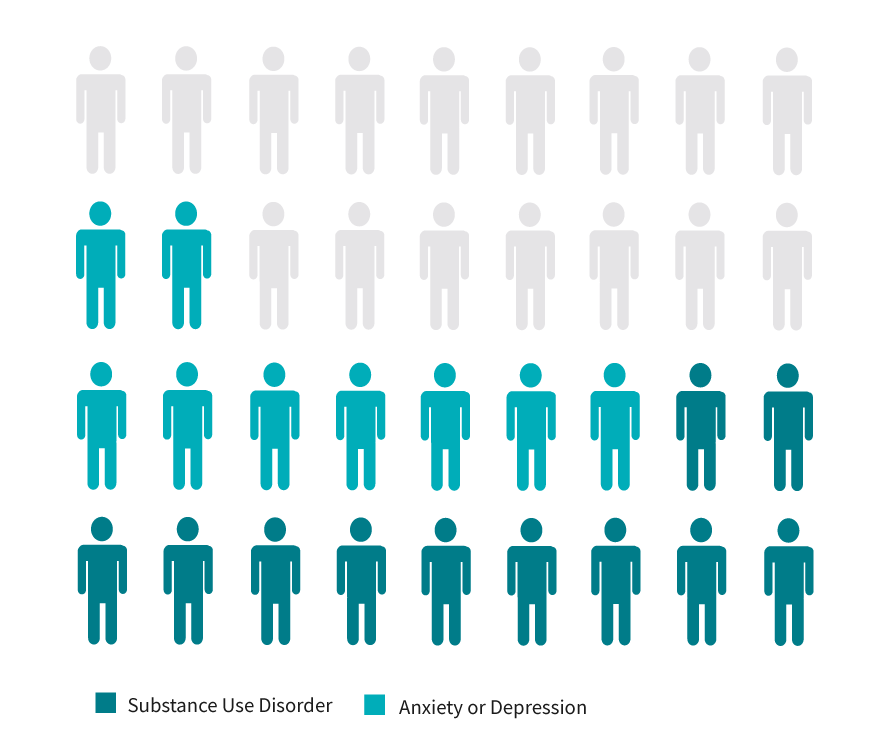How does psychotherapy work?
Psychotherapy is based on regular personal interaction to help people change their behaviors and overcome problems in the desired way. It is a form of intervention between a psychotherapist and client that hopefully resolves in the client gaining new insight about their issues and improving their well being.
Psychotherapy is about opening up to a therapist about your struggles, in a way that allows your therapist to hear and empathize with what you are going through. Therapists often practice active listening, taking an objective stance, and giving their clients valuable tools and information to make real and meaningful life changes.
A therapist can help you resolve various mental health issues, such as depression, anxiety, trauma, addiction, self-esteem, relationship problems, and anything else you may be struggling with. Psychotherapists are trained in various techniques called treatment modalities to help their clients get through whatever they are facing. An experienced therapist will create a treatment plan that includes a variety of evidenced-based types of therapy such as: psycho-dynamic, cognitive behavioral therapy (CBT), dialectical behavioral therapy (DBT), or even play therapy in order to facilitate personal growth and self-awareness for an individual, couple or group. Personal changes are made through open communication, behavioral changes, understanding patterns, changing perspectives, finding solutions, and other methods a therapist may use to help improve a client’s quality of life and mental state.
The therapeutic relationship is a crucial element in successful therapy, so taking care to choose the right therapist for you is very important.
Many professionals practice psychotherapy – psychologists, family therapists, social workers, counselors, and psychiatrists.

The National Institute of Mental Health states that one-third of adults in the US experience an emotional or substance abuse problem or disorder in their lifetime. Almost 25 percent of adults in the US will experience depression or anxiety. These numbers show that facing life problems and struggles don’t mean you are crazy or alone. When issues like anxiety, depression, or anything else you may be going through develop, don’t go at it alone – get help.
Different Approaches to Psychotherapy
Counseling: Counseling is the most common form of talk therapy. This treatment is beneficial after a recent loss, depression, anxiety, or helping to manage stressors. Counseling can go anywhere between 6 to 12 sessions and involve engaged discussions about your life. During counseling, individuals are encouraged to share prevalent thoughts and emotions, so their counselor can help them better understand what they feel and why they feel that way.
Cognitive Behavioral Therapy (CBT): CBT is the most helpful to those suffering from anxiety and depression. It is also effective for people with eating disorders, OCD and PTSD. This therapy aims to change how you think and behave to manage problems better. The goal of each session is to categorize issues into smaller pieces and to analyze your thoughts and actions to identify the ones that may be unrealistic or unhelpful. This way, you can work towards changing them.
Interpersonal Therapy (IPT): The world around us affects us just as much, if not more than our thoughts. As humans, we are social beings and find joy, happiness, and fulfillment in our relationships, so social interaction becomes a fundamental part of our mental health. IPT focuses on people with depression and relationship-based issues and examines how the connections and relationships in the patient’s life affect their mental health. A therapist practicing IPT looks at recent significant relationship changes, such as divorce, recurring conflicts with others, and grief. Each session’s goal is to explore your emotional reactions in any of these situations and evaluate your personal expectations, how to communicate them, and analyze and correct any negative behaviors. Relationship and family therapy also fall under this category.
Group Therapy: In group therapy sessions, people with similar problems share their thoughts, emotions, and experiences in a supportive environment. The role of a therapist in group therapy is to encourage personal and collective reflection while encouraging growth and understanding. Group therapy increases personal awareness of others who share similar problems and creates a comforting sense of community.
Should I consider psychotherapy?
By talking to a mental health professional, those suffering from anxiety, grief, and other emotional struggles have improved their quality of life. Change can happen anywhere from a slight increase to feeling completely cured – the spectrum of help provided through psychotherapy is vast and can be long-term.
Those with mental health problems often feel that there is no way out of them. If a mental health professional cannot help them, their first resource outside medicine is usually self-medicating through drugs or alcohol. Others spiral out of control, which can lead to even worse mental disorders down the road or even suicide. By seeking the help of a psychotherapist, you can minimize your problems and struggles by receiving support and the tools you need to respond better to life’s difficulties.
The most common reasons someone might look to see a psychotherapist include the following:
- Feeling overwhelmed and in despair for long periods.
- Emotional problems make living life daily a chore and seem impossible.
- The behaviors brought about by these emotions harm their relationships, either through withdrawal or violence/aggression.
- They have no one else to turn to, and an outside source is the safest option.
Learn More about Psychotherapy
Is psychotherapy effective?
- Many studies have shown throughout the years that psychotherapy is effective in treating and managing mental illnesses and other emotional problems. Those with depression, anxiety, and addictions can see an increase in their quality of life.
- The positive effects of psychotherapy can also be found in regards to physical illness. Psychotherapy can increase the survival time of those who have gone through heart surgery and cancer treatments because of the positivity and support it gives them. This means that psychotherapy affects both a person’s physical and mental well-being.
- It is true, however, that no one can be cured overnight. The positive aspects of psychotherapy can be both short-term and long-term, but both parties’ efforts are required.
Tips for getting the most out of psychotherapy?
- First, be willing and open to therapy. Many suffering from mental health issues, life’s many obstacles, or addictions have a crippling fear of failure or aren’t fully committed to the recovery and healing process. You must cooperate with your psychotherapist and follow any at-home instructions they offer you.
- Remember that therapy is a two-way street. Your therapist is responsible for treating you competently with approved therapy methods and understanding. You are also responsible for being open to what your therapist has to say.
How will I know the therapy is working?
- First and foremost, your therapist will establish goals of therapy with you concerning your current problem. These goals can be long and short-term, but they should be set out within a few sessions. Short-term goals can be easily tracked, but long-term goals may be more important to keep in mind. Focusing on your progress toward your goals can be a great way to track your success.
- Any progress is a process. You probably won’t see instant results, so don’t be discouraged if change doesn’t happen immediately. Also, remember to take baby steps; no one wants to be uncomfortable or go through a long process to recover. However, that might be what it takes.
- Therapy works best when you have a good rapport with your psychotherapist. If at some point, you feel stuck or like you aren’t moving forward with your therapist, they may not be a good fit for you, and you might have to look for someone that is a better fit.
- Remember to consider your therapist’s opinions and observations while bringing in your mind’s rational ideas. It is typical to become emotional and break down once you start therapy. You’re likely tackling many tough subjects, which can make you more emotional. Sometimes the more emotional or anxious you feel after treatment, the more proof there is that you are moving forward. Going through therapy isn’t always easy, but the results you’ll see for your efforts are well worth it.
- Remember that therapy is a two-way street. Your therapist is responsible for treating you competently with approved therapy methods and understanding. You are also responsible for being open to what your therapist has to say.
How has therapy changed since the pandemic?
- Mental health professionals are reporting an increase in the demand for treatment of depression and anxiety compared with before the COVID-19 pandemic, according to a new American Psychological Association (APA) survey. Other areas with greater demand are sleep-wake disorders, obsessive-compulsive disorders, and addictive disorders, the survey found.
- The pandemic has led to a permanent change to telehealth for many psychologists, and mainly all clinical psychologists have provided some services remotely (96%). Only a majority has returned to seeing clients in person since a year ago (about 4% vs. 3% in 2020). Many mental health professionals are using a hybrid approach by seeing some clients in person and some online, showing a progression back to an office setting.
- The APA continues to push for insurance coverage of telehealth services. Telehealth services help clients from under-served communities access these mental health services. Showing that telehealth is here to stay, 96% of psychologists expressed that telehealth during the pandemic is effective as a therapeutic tool, and 93% said they would continue using telehealth in their practice after the pandemic.
- As a response to this increased demand for online therapy, the The Psychology Interjurisdictional Compact (PSYPACT®) was formed. This commision is an interstate compact designed to facilitate the practice of telepsychology and the temporary in-person, face-to-face practice of psychology across state boundaries. Search therapytribe for a qualified online therapist in your state or country.
If you or a loved one are looking to find the best therapist for you, start by searching TherapyTribe therapist directory today.
References
- American Psychological Association. (2021). Demand for mental health treatment continues to increase, say psychologists. Retrieved December 1, 2022 from: https://www.apa.org/news/press/releases/2021/10/mental-health-treatment-demand
- American Psychological Association. (2016). Understanding psychotherapy and how it works. Retrieved April 16, 2019, from: http://www.apa.org/helpcenter/understanding-psychotherapy.aspx
- Ranna Parekh, M.D., M.P.H., Lior Givon, M.D., PH.D. (2019, January). What is Psychotherapy? Retrieved April 16, 2019, from: https://www.psychiatry.org/patients-families/psychotherapy
- Herkov, M. (2018). What Is Psychotherapy? Retrieved on April 15, 2019, from: https://psychcentral.com/lib/what-is-psychotherapy/
